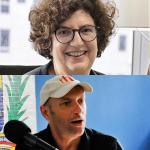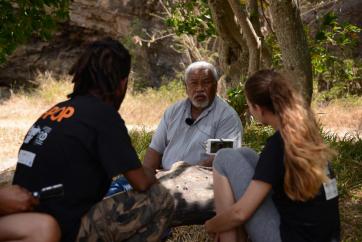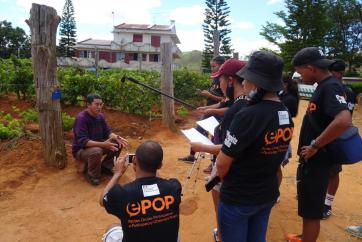As a participatory media ePOP’s aim is to give a voice to all those directly affected by environmental and climate change, to disseminate their testimonies more widely and put them in discussion with scientists, experts and decision-makers, so that the areas affected can commit more to social and ecological transition in response to the Sustainable Development Goals (SDGs).
Through ePOP, young people (aged 15 to 30) – known as “ePOPers” – across five continents can make short films on their smartphones and become the spokespersons for the experiences and enquiries of their community. To foster intergenerational dialogue, older people, in particular, are encouraged to speak up, as they have borne witness to many years of global change. The video testimonies are published on social networks and in local and international media. This process of exchange also encompasses the organisation of regular “AfterPOP” public events – an essential element of the ePOP concept, during which the best videos are screened and then discussed with scientists, politicians, representatives of civil society, artists, ordinary citizens, etc. These events provide an opportunity to initiate genuine public debate, involving all stakeholders, including young people, in reflection and discussion.
This original approach places young people at its core and was initially launched in the Pacific region, notably in New Caledonia, Fiji, Vanuatu and New Zealand. It is now up and running also in Western and Central Africa, and in the Indian Ocean islands of Reunion and Madagascar. The network today has more than 94,000 followers from 48 countries, with the Democratic Republic of the Congo, Madagascar and Algeria topping the list. Since 2017, more than 650 films have been produced, featuring just as many testimonies from all over the world, delivered in some 30 different languages! Climate change and its effects are a recurring theme with, for example, fishermen in Benin and Senegal, who are worried about the depletion of fish stocks; Pacific Islanders denouncing rising sea levels or coastal erosion caused by increasingly frequent storms; and crop and livestock farmers in the Sahel, dismayed by prolonged droughts…
On Facebook, the videos, which are published at rate of one a week, attract more than 1.2 million views a year and counting. They are gradually being incorporated into a video library – accessible via the epop network site – which is now one of the most extensive databases of testimonies by citizens around the world who are dealing with environmental changes.
The burgeoning success of ePOP has made it possible to build a diverse network of partners, including, notably, the European Union, the Fondation de France, the Agence Française de Développement (AFD) Group Funds, the French Biodiversity Agency, the University of the South Pacific, the University of Reunion Island, the Gobelins School, ACTED, the WWF, etc.
Ever keen to stimulate public debate, ePOP has been present at all the major meetings in the international calendar over the past four years. Videos have been screened under the AfterPOP banner and ePOPers have been able to debate with, for example, experts and decision-makers during COP 23 (Bonn, 2017), at the United Nations’ Ocean Day in New York (also 2017), at the 30th anniversary of the IPCC (UNESCO, 2018), at the international Island Biology symposium (La Réunion, 2019), as well as at numerous local and Facebook Live events, during the pandemic. This dynamic ePOP network shows no signs of easing up in the coming months, with participation in the following events already in the diary: the IUCN World Conservation Congress (Marseille, September 2021), COP 24 (Glasgow, November 2021) and the World Water Forum (Dakar, March 2022).
After four years of development, ePOP now enjoys a global presence, built around three regional branches (Central Africa, Indian Ocean and the Pacific region) run by young people from the ePOP community. These ePOPers help with video production and provide technical support to film-makers, especially by organising training – face-to-face and via e-learning – in how to make video reportage using a smartphone. This training rounds off the e-learning offering established by RFI Planète Radio and can be accessed via the epop network.
The momentum of the project is bolstered by way of an annual competition, involving participants from all over the world – a highly active community that’s getting bigger every year. The prize-giving ceremony for the 2021 competition will take place at the IUCN World Conservation Congress on 6 September, in the presence of personalities from the media and the research community. Last but not least: on the afternoon of 11 September, the Congress delegates will be able to take part in an AfterPOP, where they can meet up with young ePOPers who have come to present their best films, or on the ePOP stand in the Nature Generations Areas.
About the authors
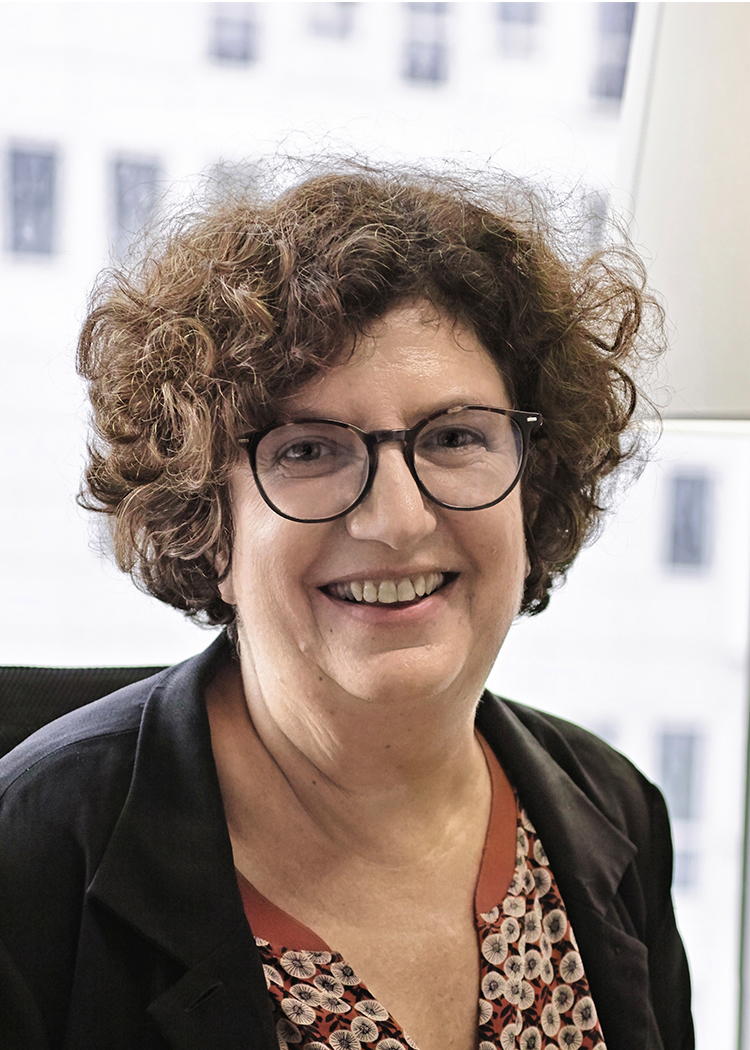
Photo: jbavril
Marie-Lise Sabrié is the director of the Scientific and Technological Culture Mission at the French National Research Institute for Sustainable Development (IRD). She is at the initiative of a policy of disseminating scientific information aimed at strengthening the links between science and society in France and in developing countries, particularly in the Maghreb and in the sub-Saharan Africa. With NGOs, schools or cultural institutions in these countries, she develops innovative educational systems to introduce young people to the scientific research and engage them in mobilizing in favor of sustainable development goals.
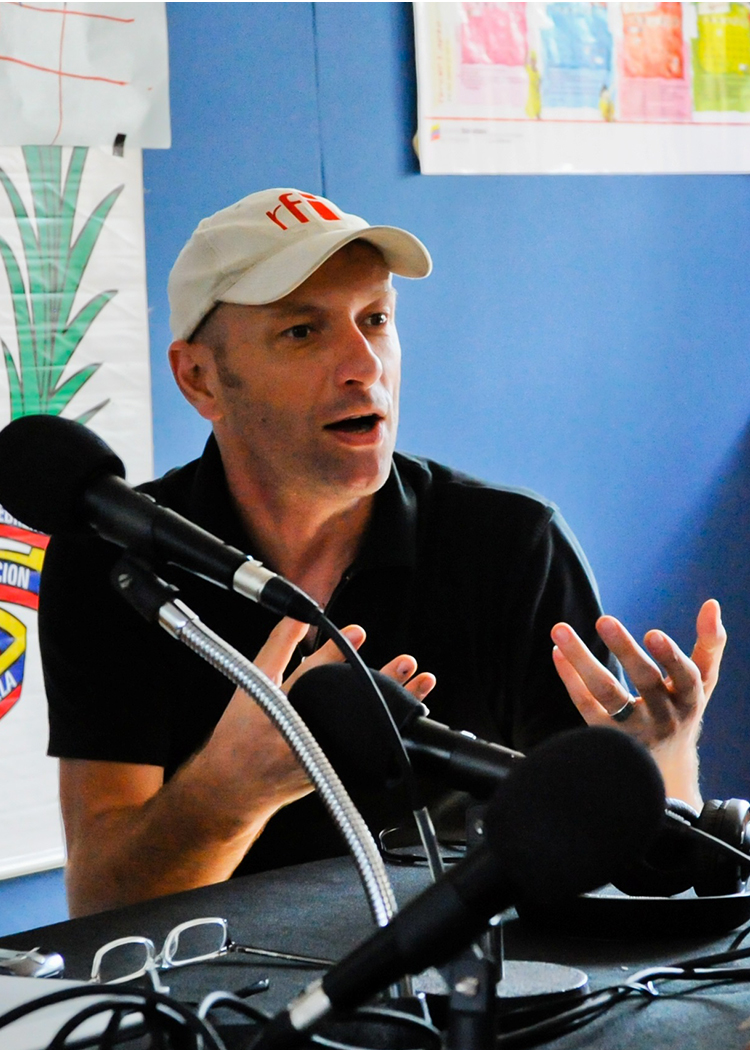
Photo: RFI
Max Bale is the Director of the RFI Planète Radio service (France Medias Monde group) and Head of Radio France / RFI Cooperation technical Fund. Expert in community media, he designs and develops international audiovisual projects all over the world, relying on a very large network partners (NGOs, international institutions, foundations).
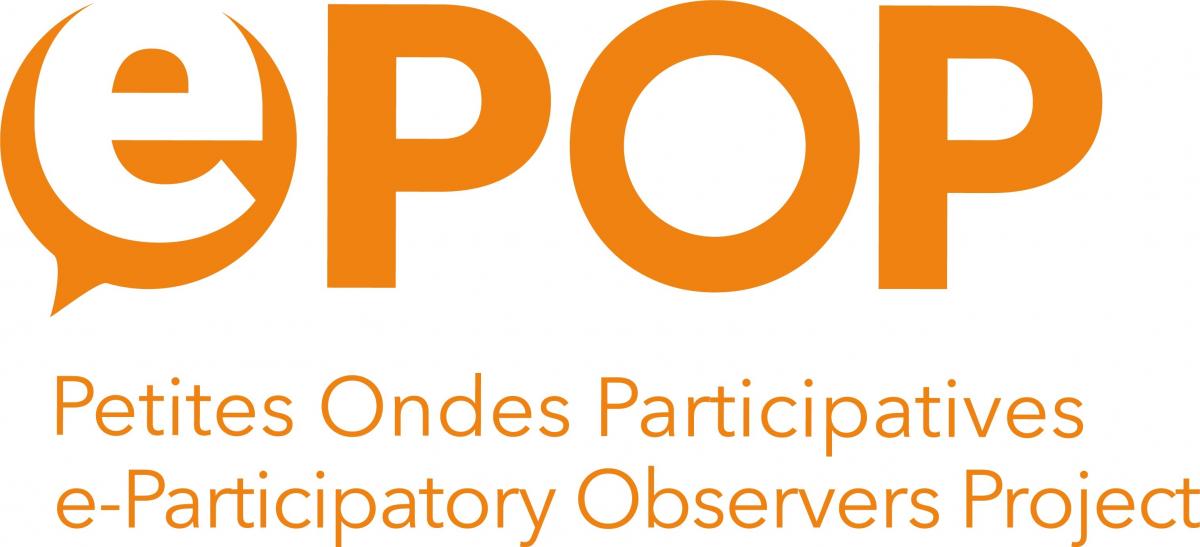
In 2017, Marie-Lise Sabrié and Max Bale launched the ePOP project, a citizen media serving populations threatened by climate and environmental change.

